Financial freedom.
It’s the dream. Not having to work for the (wo)man. Not having to live under a cloud of crushing debt. Not having to do anything, really.
You are free to do what you want, when you want.
That all sounds amazing. But you can’t achieve a goal unless you define exactly what it is you are trying to achieve.
When asked to define what “financial freedom” is to them, people struggle. This is not only problematic in terms of not having a set objective to aim for, but it can also make the end goal seem unattainable.
After all, it’s a long way to go from living paycheck to paycheck to “doing what I want, when I want”. If you simply see it as either one or the other, the financial mountain in between can seem insurmountable.
But framing it another way can show you just how achievable financial freedom is – and just how you can get there.
Related articles:
- The Step-by-Step Guide to Investing Like a Pro
- Check out Step 1: The Beginners’ Guide To Investing Like An Expert (Including How To Beat The Professionals) right here!
- How To Think Like A Future Millionaire
- The Only Tip You Need To Reach Financial Freedom As Soon As Possible
- The One Principle That Will Guarantee Your Financial Future
- How Much Money Do I Need To Retire?
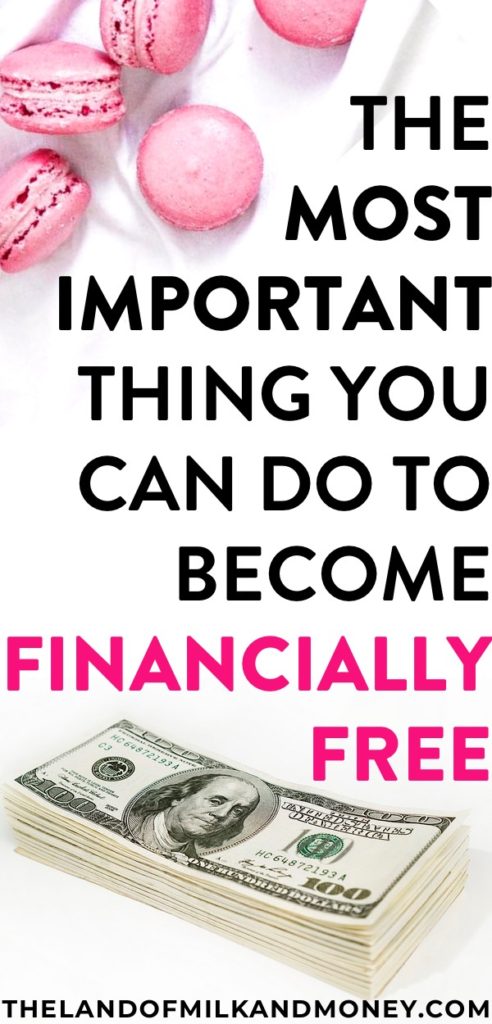
What does financial freedom not mean?
Let’s start with what financial freedom is not.
It’s not about simply obtaining a set amount of wealth, although that obviously helps.
It’s also not only reaching a point that allows you to retire, if you define retirement as the time that you never have to work ever again (which I don’t, as discussed below).
Finally, it’s not about becoming rich enough that you can do absolutely anything you want for the rest of your life. You may be wealthy enough to go on that round the world cruise. But if you do it every year (and you’re not an oligarch), you may soon find yourself swinging back down the financial ladder.
Well, then, what is financial freedom?
It is a whole bunch of wonderful, completely achievable things that, together, allow you to live your best life.
It’s having no debt. You will not owe a cent to anyone, so no one can threaten to take anything away from you if you don’t pay them. Essentially, everything you own is entirely yours.
This includes paying off your mortgage (if you have one).
It’s being able to live comfortably. You should be able to pay what you need, when you need, without sacrificing your life. It’s being able to go for a night out or on a trip without stressing about how this will affect your ability to pay your bills, while still having plenty left over.
It’s having an emergency stash of money. If an unwanted surprise appears, such as someone getting sick or a tree branch falling on your house and smashing a hole in your roof or even something like your computer having an unfortunate encounter with a glass of water, you will be able to cover the cost without even blinking.
It’s earning enough passive income to be able to change jobs or start a business or even continue in your current job without fear of being fired. Essentially, it’s being able to do the work you want to, not the work you have to.
It’s living healthier. You will sleep better, have the budget for better food (and probably more time to prepare better meals), and you will be able to go on holidays more often that allow you to recharge.
Most importantly, you will be free from the immense stress that the burden of debt can cause. Financial pressure is one of the leading causes of high amounts of stress in today’s society. This can, in turn, affect all areas of your life from your personal relationships to your physical health. Being free from this can have huge benefits for your health and your life as a whole.
The end goal should be to have enough money to give yourself the options to do those things that you can’t do now. Within reason.
So it means that I can retire?
Yes and no.
I, personally, like working. Don’t get me wrong; I love having time off too and there are days when getting out of bed to go to the office feels like torture. (Not just me?)
Fortunately, retirement doesn’t have to mean not working – and often doesn’t.
This is good not only for me but for those around me. After all, I strongly suspect that if I suddenly stopped working completely without anything else to fill my time, I’d quickly become extremely bored and probably very annoying to my friends and family.
As such, retirement – or financial freedom or financial independence or whichever term you choose to use – should be thought of as follows.
Financial freedom is about having options
It’s about having the option to say, you know what, I think I’ll resign and go travelling for a while. After all, I’ve made it to 50 countries by age 31; why not add to the list!
Or take some time off to learn a new language or study a university degree or renovate your home or start a home brewing business or launch your website.
In fact, when we talk about retirement (such as my plan to retire before I am 40), this does not mean spending the rest of our days fishing or going to the bowls club every afternoon.
(Both of which sound really fun though, I have to say.)
Today, according to the Huffington Post, nearly half of retirees report that they have worked or plan to work during their retirement and 72% of so-called “pre-retirees” say that they want to keep working when they retire.
While this is partly due to the need for financial security, 80% of current working retirees report that they work because they want to, with the most commonly stated reason by far (62%) being in order to stay mentally active.
In line with this, the largest number of successful entrepreneurs today are people in their 50s and 60s. Working retirees are now three times more likely than pre-retirees to be entrepreneurs. And nearly three out of five working retirees advised that they considered retirement to be an opportunity to transition to a different line of work.
In summary, retirement is about having the time and the money to do those things that you couldn’t do before.
Much like financial freedom.
So how do I become financially free?
The first thing to clarify is that everybody can achieve this.
However, much like the path to financial freedom, being wealthy enough to be financially free is just as much about reducing your spending as it is about how much you have accumulated.
As repeatedly stated here at The Land of Milk and Money, becoming wealthy involves the following:
Earn more
Spend less
Make your money work for you
So being financially free means being at a point where the money you already have + the money that’s working for you is sufficient to last you forever based on how much you spend.
You can easily find out exactly how much that is here. But, suffice to say, the more you limit your spending, the quicker you’ll be able to reach financial freedom.
JL Collins has an excellent story to clearly show this:
“Two close boyhood friends grow up and go their separate ways. One becomes a humble monk, the other a rich and powerful minister to the king.
Years later they meet. As they catch up, the minister (in his fine robes) takes pity on the thin, shabby monk. Seeking to help, he says:
“You know, if you could learn to cater to the king you wouldn’t have to live on rice and beans.”
To which the monk replies:
“If you could learn to live on rice and beans you wouldn’t have to cater to the king.”
This is not to say that you should immediately commit to a diet of rice and beans. In fact, the occasional fine robe may even be doable for you.
But if you learn to limit your spending much like our good friend, the monk, you too may no longer have to cater to the king.
(Don’t tell your boss you called him that. His ego is big enough already.)
The most important factor to being financially free
Financial freedom means different things to different people.
Essentially, your definition of financial freedom will depend on the extent to which you are able to limit your spending.
Having a high income certainly helps (as per the “earn more” part of the above equation). However, the belief that you have to be rich to be able to retire early is not at all accurate.
A far more important factor, both for reaching financial freedom and for maintaining that status, is your savings rate.
There are plenty of high-income earners who end up with no savings due to their apparent need to live the high life. This is often known as lifestyle creep. You may refer to it as “Keeping up with the Joneses”.
At the same time, plenty of people earning normal incomes have worked out how to live in a way that allows them to achieve financial freedom – many even years before the “standard” retirement age! (Hi there!)
(If you’d like more information on this, read The Millionaire Next Door by Thomas J. Stanley. It’s a great book that shows how many of the truly wealthy among us live the most normal lives.)
Let’s put it this way: say you earn the current US median household income of $59,039. Saving just over 10% of that, or $6,000, is far easier than earning an additional $6,000 each year – at least immediately.
(Try going to your boss today to negotiate a $6,000 pay rise. I assume that it won’t necessarily be well received.)
And if you save that every year for 30 years, with a standard 7% annual rate of return and the magic of compound interest, you will have $606,438 based on investing $180,000. As explained in that article, this is equivalent to earning just over $450,000 for doing absolutely nothing.
Now let’s extend that out to saving even higher amounts – say, 50%.
Hang on, you say. That’s impossible.
Is it? Why? If someone told you that a company had a 50% profit margin, you probably wouldn’t blink.
Why treat your own finances any differently from a business?
I acknowledge that “I have a savings rate of 50%” can sound a bit scary, if not completely impossible to achieve.
This is why this site recommends referring to it as your own personal profit margin.
“I have a profit margin of 50%”.
Sounds better, right? It sounds successful and exciting and completely doable.
As mentioned, saving more having a higher profit margin can be more important than earning more. I’m sure you’d agree that, on the assumption that you’re earning the median income of $59,039, it’s much easier to save 50% of this than earning an extra $29,519.50 per year.
Note that I didn’t say “easy”. Teaching yourself to live off 50% of your income can certainly be really freaking hard.
But think of this as a process. One where you start at saving 5% of your income. Then 10%. Then 20%.
(Check out the great road map setting out the 5 Steps for You to Reach Financial Freedom in another article on The Land of Milk and Money right here.)
As you learn more tricks to save money and quickly figure out what you can live without in order to meet your financial goals, you’ll be at a profit margin of 50% before you know it.
Especially when you realise that a profit margin of 10% will allow you to reach your financial goals twice as quickly as if you were saving 5%.
So just think of what you’ll end up being able to do with a rate of 50%.
How quickly you reach financial freedom is up to you
It comes down to this: how much do you want it?
Or perhaps: what do you value more?
Can you not live without the latest iPhone or do you absolutely need to upgrade your car every few years?
If so, it’s going to take you longer to climb that mountain – if you manage to reach the summit at all.
Or is the idea of freedom – from debt, from having to work, from stress, from insecurity – worth more to you than any flashy new gift to yourself?
How much do you want to have the option of doing whatever you want?
And now that you’ve answered that:
What changes are you ready to make in your life to start down the path to financial freedom?

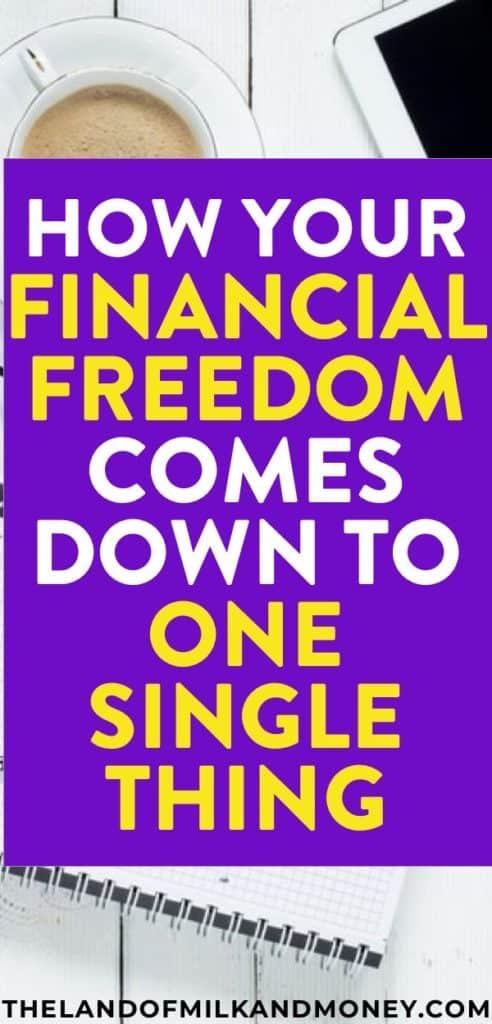
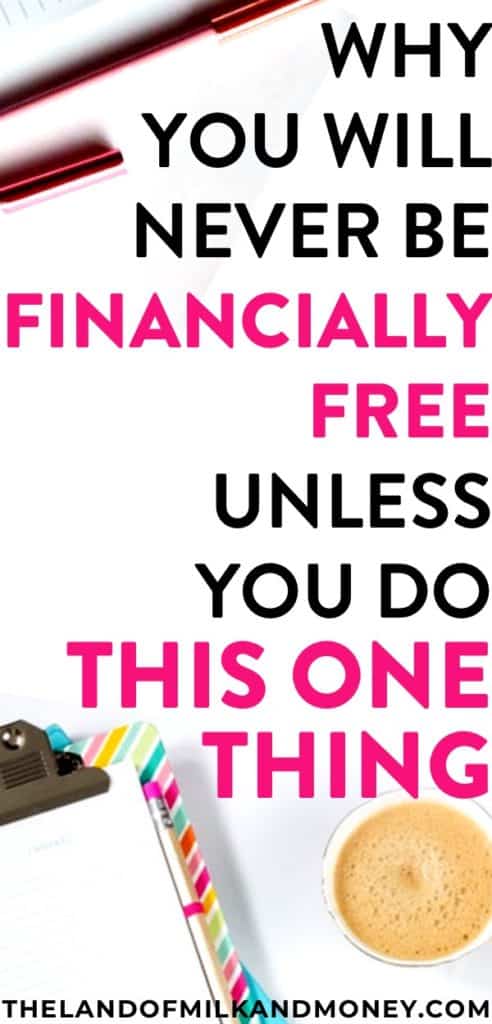
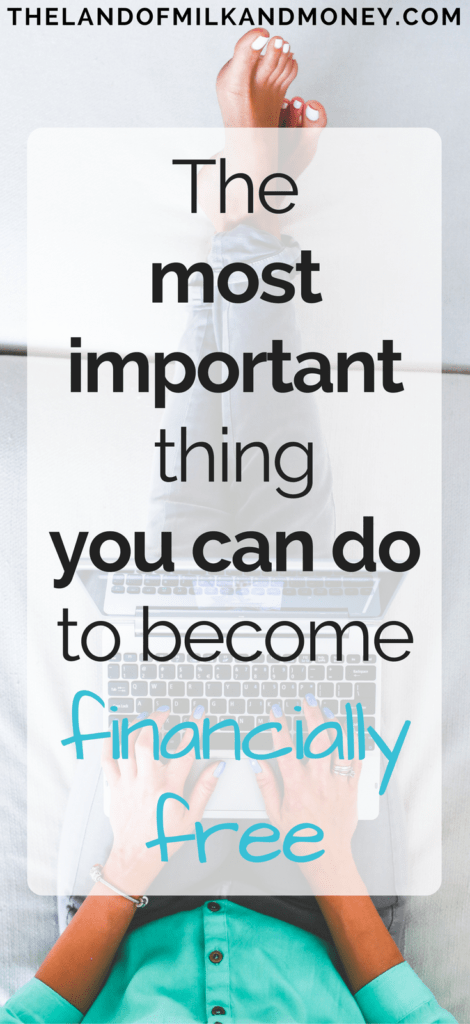
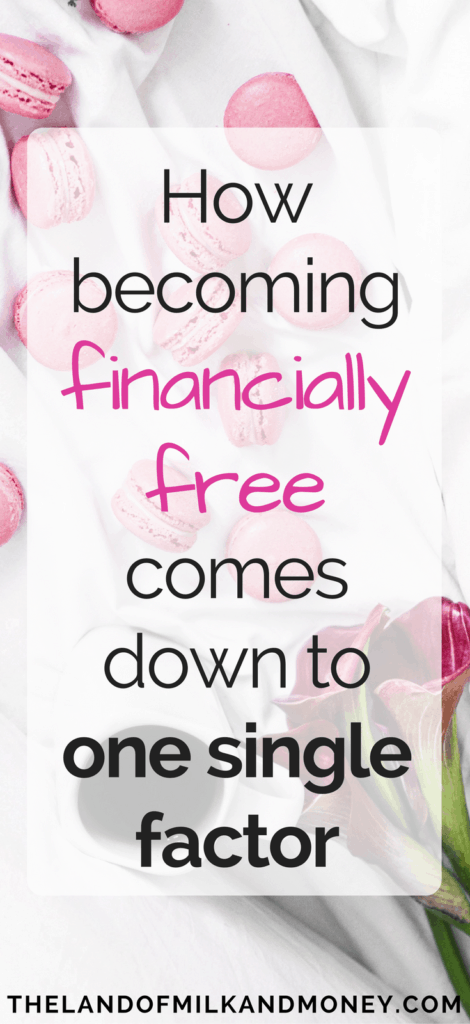
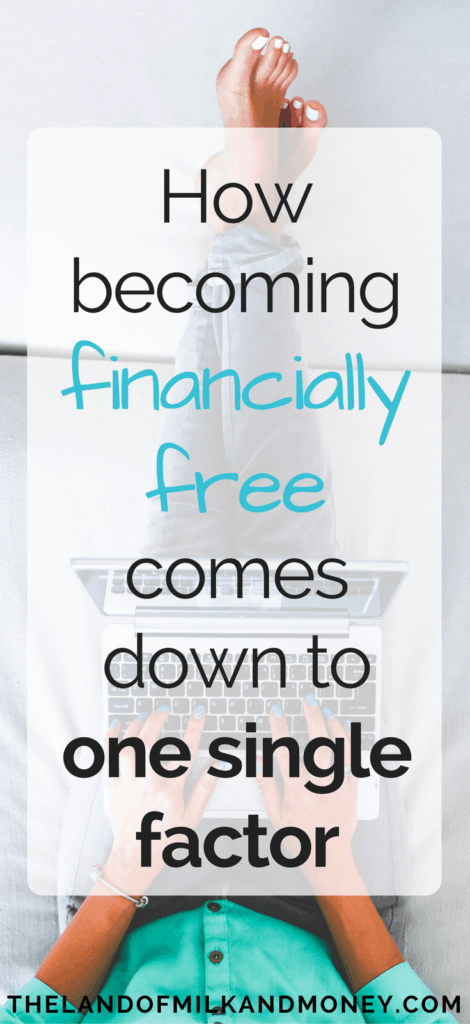
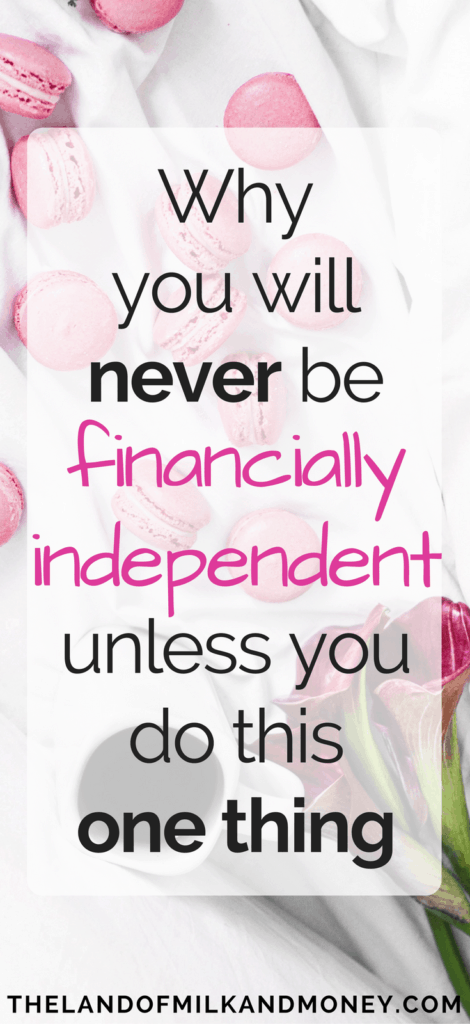
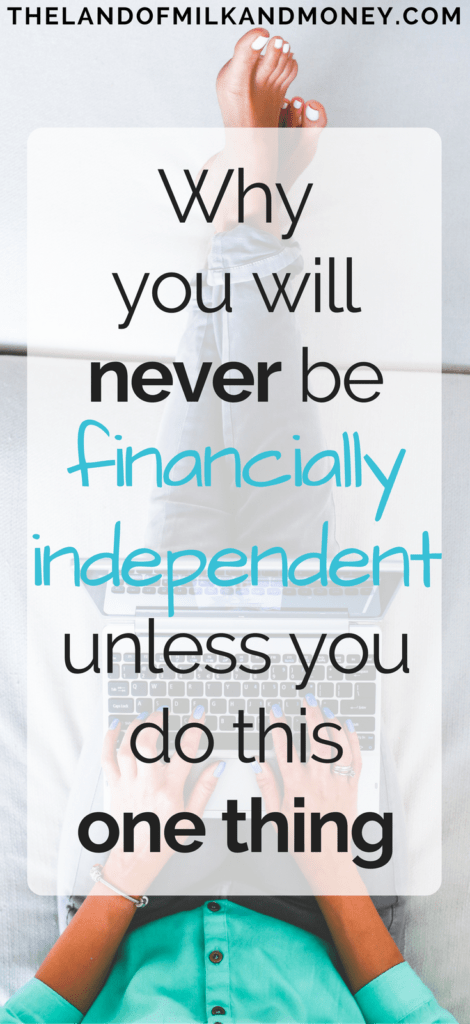
1 comment
[…] if it was possible to have financial freedom authored by Queen Money Bee. Her post is called “Financial Freedom is Totally Achievable. Here’s How.” What is always easier to control is your spending than it is to get a raise to bring in more […]